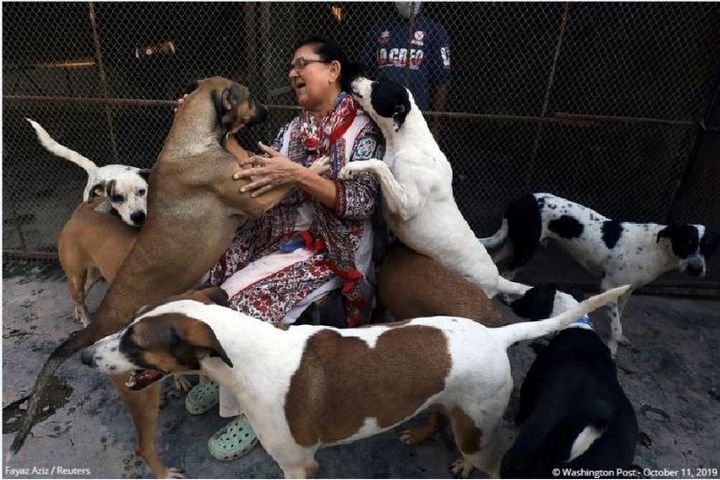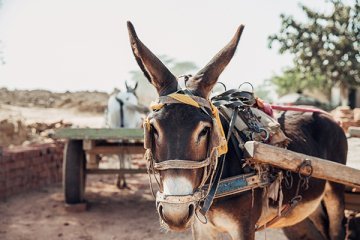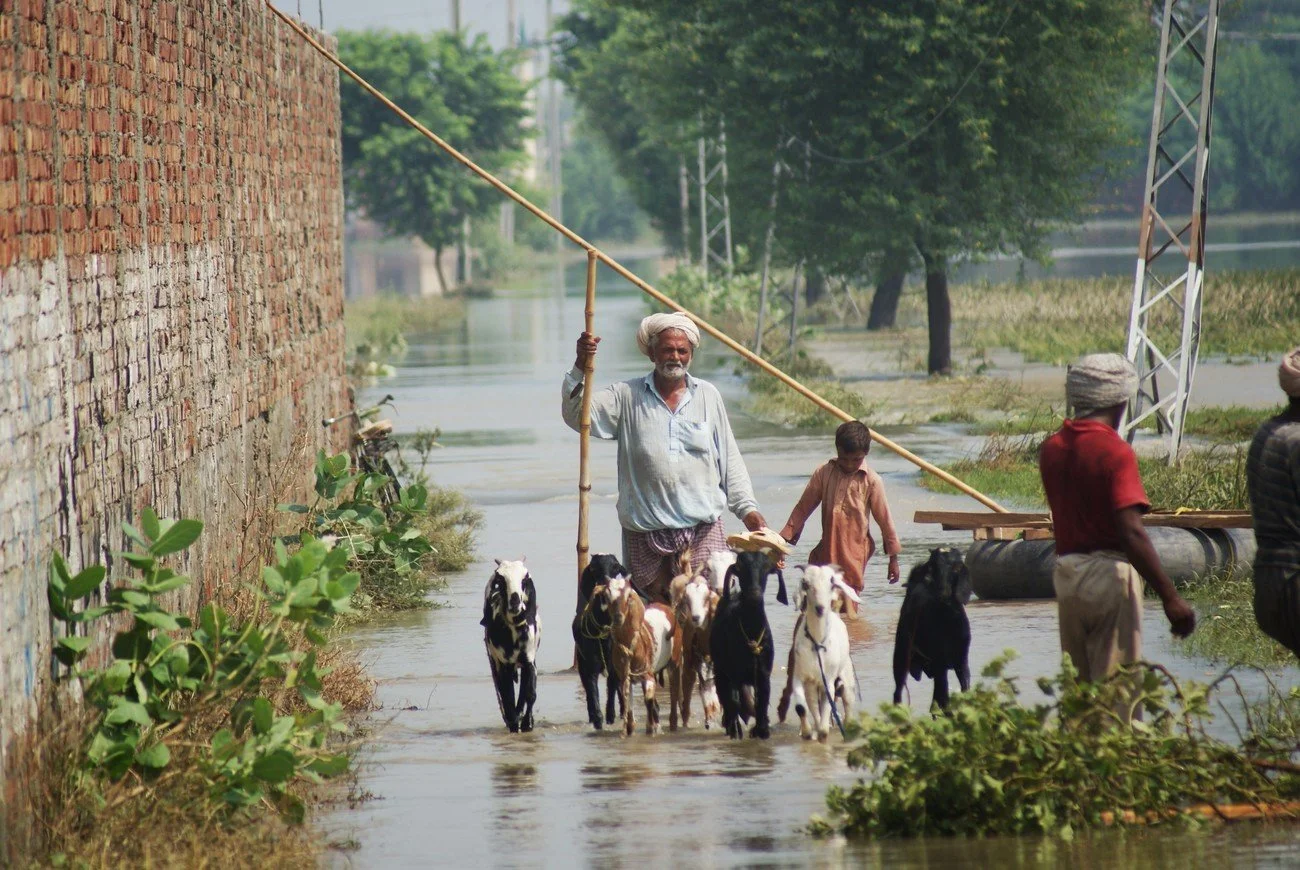How You Can Help Animals Caught in the Pakistan Floods
Sanctuaries in Pakistan are in urgent need of our support after the devastation of the flooding crisis. Here’s how you can help them to keep the animals in their care safe, warm and fed.
Record-breaking floods across Pakistan have displaced more than 33 million people, with huge areas of the country still submerged under water. This catastrophe has claimed the lives of 1,250 people and around 700,000 farmed animals. The country's climate change minister Sherry Rehman has called the situation a "climate-induced humanitarian disaster of epic proportions."
Pakistan is considered the eighth most vulnerable country to disasters caused by climate change, according to The Global Climate Risk Index, despite being responsible for less than 1 percent of the world’s planet-warming gases.
With the country reeling from the devastation, sanctuaries and charities are racing to protect the country’s vulnerable animals as well as those already in their care. Here’s how you can support them:
Lucky Animal Protection Shelter
Credit: LAPS
Lucky Animal Protection Shelter (LAPS) is the first-ever dog rescue and animal shelter in the Khyber Pakhtunkwa province of Pakistan. Founded by Zeba Masood, the organization is working to eradicate rabies in the surrounding area, control the dog population through spay and neuter programes, and educate the community in Peshawar to treat dogs with compassion.
LAPS staff had to rescue their 250 dogs, many injured and sick when the deadly flooding in north-west Pakistan reached their shelter.
Learn more about LAPS work here, read their GoFundMe page here and donate to support their shelter here.
Tahira Animal Welfare Foundation
Credit: TAWF
Tahira Animal Welfare Foundation (TAWF) is working to rescue and rehabilitate the homeless, injured and neglected animals of Pakistan. TAWF is trying to provide all possible help to the people and animals in distress during the ongoing flood relief mission in the flood-affected areas. TAWF is also in the process of setting up medical camps to save humans and animals from epidemics and waterborne diseases in flood-affected areas.
You can support TAWF’s work here.
Brooke Pakistan
Credit: Brooke
Brooke is an international charity that protects and improves the lives of horses, donkeys and mules. Brooke Pakistan has carried out rapid assessments of animals in a number of regions in the Sindh province, South Punjab and Khyber Pakhtunkhwa (KPK). Overall, based on the estimated number of horses, donkeys and mules in the 14 districts they work in, potentially over 600,000 equine animals could be affected.
Brooke has released emergency funds to enable teams to quickly set up flood relief camps, send mobile units to different locations across the regions, and provide immediate food and fodder supplys, as well as rations for the medium-long term. Teams are also providing treatment for injured and sick animals, as well as food rations for people and other animals, such as sheep, goats, cows, and buffalos.
You can support Brook Pakistan’s work here.
International Fund for Animal Welfare
Credit: IFAW
In response to the floods, the International Fund for Animal Welfare (IFAW) has rushed an emergency grant to their partner, Education, Awareness and Community Health (EACH). The grant supports the purchase and distribution of food for 1,000 cows and other farmed animals to help keep them safe. The charity is also facilitating humanitarian requests for displaced families and working with local animal shelters to assist them with long-term recovery.
You can support IFAW’s work in Pakistan here.
ACF Animal Rescue
The Ayesha Chundrigar Foundation (ACF) is the largest rescue organization in Pakistan working to help injured, abused and neglected stray animals such as dogs, cats and kites and working animals such as donkeys, horses, and camels. The group also raises awareness about the importance of empathy and compassion for animals.
You can support ACF’s work here.
What we eat matters
Did you know that farming animals for food plays a huge role in land and water degradation, deforestation, and biodiversity loss, and is responsible for more greenhouse gases than the world’s transportation systems combined?
The devastating effect that animal agriculture is having on our planet is leading wildlife experts and climate change campaigners - from Greta Thunberg to David Attenborough - to urge us all to reconsider our habits and diets to help prevent climate catastrophe.
In fact, a global shift towards a vegan diet is necessary to combat the worst effects of climate change, according to the United Nations, and research from the University of Oxford shows that going vegan is the “single biggest way” to reduce your impact on the planet.
Whether it’s for ethical, environmental, or health reasons, a record number of people are choosing to eliminate animal products from their lives. And in 2022, switching to a vegan diet will be easier than ever, and Species Unite is here to help. Download our free What We Think, Wear, and Eat Matters Starter Kit to begin your journey.
We Have A Favor To Ask…
Species Unite amplifies well-researched solutions to some of the most abusive animal industries operating today.
At this crucial moment, with worldwide momentum for change building, it’s vital we share these animal-free solutions with the world - and we need your help.
We’re a nonprofit, and so to keep sharing these solutions, we’re relying on you - with your support, we can continue our essential work in growing a powerful community of animal advocates this year.
More stories:
Species Unite
A collection of stories of those who fight the good fight on behalf of animals.








Meat giant JBS USA misled consumers with fake sustainability claims to boost sales, the lawsuit alleges.